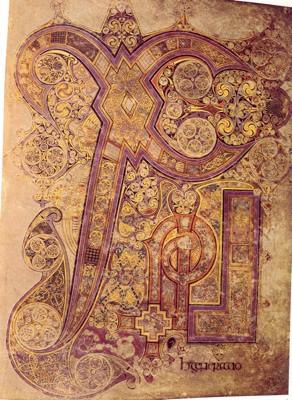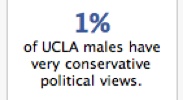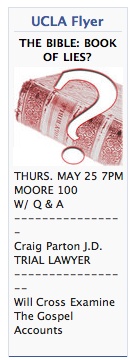Mmmmmmm….David Rio Tiger Spice Chai.
The Rumble
•April 24, 2007 • 1 CommentStuffed inside my one-room cabin,
Secret plan about to happen.
In dark quiet exciement flows,
‘Twas this night that we chose.
Twelve of us but they just two,
Odds too good to be true.
Their shadows seen behind the curtain,
Our prefects’ check-in route is certain.
First stop will be cabin six.
Judgment for their frequent tricks.
The bell resounds, its ten o’clock
We’re freshmen wolves, no more a flock.
The trap is lay, our muscles flex,
Prepped to give lacrosse checks.
A change is heard: their knock is fainter.
Not this scene first do they enter!
An empty room they’ve surly burst,
The jig is up, our plan is cursed!
Long minutes pass…room’s a sauna,
Nervous warriors, newfound drama.
Outta sight, omniscience theirs.
Not this fear in nightmares.
“Stay here guys, our strength is numbers,
Remain together, defend these chambers—”
Wild footsteps, beasts approaching,
Ironic tale now unfolding.
Fun’ling through the cabin’s entrance
Whole senior class: reinforcements.
Men with beards and soccer sock whips,
Our strongest guy squeaks, “Abandon ship!”
They fling our bodies and squash our pride,
This band of brothers humilified.
Sent to bed, extra morning chores,
Wiser next year, we’ll be sophomores.
“Christ” in Print
•April 23, 2007 • Leave a CommentAccording to my English professor, the most celebrated page of the middle ages is the ChiRho (Christ) page in the Book of Kells. UCLA has one of the mere 500 facsimile copies in its enormous library collection (2nd only to the Library of Congress…no excuse for not being able to find a book!) Kerry and I are going to the special collections this week to see it in person. Magnificent:

Malebranche Paper
•June 4, 2006 • Leave a CommentI received an “A” on my philosophy paper. It is posted here: Malebranche: Ideas & Sensory Error.
Are darkness, coldness, and redness real and positive? Isn’t darkness/coldness just the absence of light/heat? If so then what is the cause of our idea of cold? Why do we think things possess the quality of “cold” when no such quality exists? And furthermore, if God is good then why does he allow us to make errors when we judge things that appear to us? Of course these questions depend on your understanding of how ideas of objects connect to things in the real world, how we make mistakes in our judgments about things, and what God’s goodness has to do with it all. A lot of ink has been spilled by philosophers on this topic and my paper is just some more ink (actually laserjet toner). This essay analyzes the views of two philosophers: René Descartes (the father of modern philosophy) and Nicolas Malebranche (a crazy philosopher who liked Descartes and tried to save his theory from criticisms).
My TA who graded it wrote:
“Good damn work. Your writing is occasionally tortuous or incomprehensible. Your Descartes sections are great but the Malebranche stuff – very insightful.”
This is the essay topic I chose to write about:
How, according to Malebranche, are we able to think about the physical world? In answering this question, outline Malebranche’s theory of ideas paying particular attention to what, on his view, is the immediate object of a thought. How does he think that we go wrong in making judgments about the physical world? Evaluate Malebranche’s solution to the problems Cartesians faced in accounting for sensory error. (1500 word maximum, 35% of grade)
Law & Gospel: 25 Theses
•April 23, 2006 • Leave a CommentThesis I.
The doctrinal contents, of the entire Holy Scriptures, both of the Old and the New Testament, are made up of two doctrines differing fundamentally from each other, viz., the Law and the Gospel.
Thesis II.
Only he is an orthodox teacher who not only presents all the articles of faith in accordance with Scripture, but also rightly distinguishes from each other the Law and the Gospel.
Thesis III.
Rightly distinguishing the Law and the Gospel is the most difficult and the highest art of Christians in general and of theologians in particular. It is taught only by the Holy Spirit in the school of experience.
Thesis IV.
The true knowledge of the distinction between the Law and the Gospel is not only a glorious light, affording the correct understanding of the entire Holy Scriptures, but without this knowledge Scripture is and remains a sealed book.
Thesis V.
The first manner of confounding Law and Gospel is the one most easily recognized―and the grossest. It is adopted, for instance, by Papists, Socinians, and Rationalists and consists in this, that Christ is represented as a new Moses, or Lawgiver, and the Gospel turned into a doctrine of meritorious works, while at the same time those who teach that the Gospel is the message of the free grace of God in Christ are condemned and anathematized, as is done by the papists.
Thesis VI.
In the second place, the Word of God is not rightly divided when the Law is not preached in its full sternness and the Gospel not in its full sweetness, when, on the contrary, Gospel elements are mingled with the Law and Law elements with the Gospel.
Thesis VII.
In the third place, the Word of God is not rightly divided when the Gospel is preached first and then the Law; sanctification first and then justification; faith first and then repentance; good works first and then grace.
Thesis VIII.
In the fourth place, the Word of God is not rightly divided when the Law is preached to those who are already in terror on account of their sins or the Gospel to those who live securely in their sins.
Thesis IX.
In the fifth place, the Word of God is not rightly divided when sinners who have been struck down and terrified by the Law are directed, not to the Word and Sacraments, but to their own prayers and wrestlings with God in order that they may win their way into a state of grace; in other words, when they are told to keep on praying and struggling until they feel that God has received them into grace.
Thesis X.
In the sixth place, the Word of God is not rightly divided when the preacher describes faith in a manner as if the mere inert acceptance of truths, even while a person is living in mortal sins, renders that person righteous in the sight of God and saves him; or as if faith makes a person righteous and saves him for the reason that it produces in him love and reformation of his mode of living.
Thesis XI.
In the seventh place, the Word of God is not rightly divided when there is a disposition to offer the contrition of the Gospel only to those who have been made contrite by the Law, not from fear of the wrath and punishment of God, but from love of God.
Thesis XII.
In the eighth place, the Word of God is not rightly divided when the preacher represents contrition alongside of faith as a cause of the forgiveness of sin.
Thesis XIII.
In the ninth place, the Word of God is not rightly divided when one makes an appeal to believe in a manner as if a person could make himself believe or at least help towards that end, instead of preaching faith into a person’s heart by laying the Gospel promises before him.
Thesis XIV.
In the tenth place, the Word of God is not rightly divided when faith is required as a condition of justification and salvation, as if a person were righteous in the sight of God and saved, not only by faith, but also on account of his faith, for the sake of his faith, and in view of his faith.
Thesis XV.
In the eleventh place, the Word of God is not rightly divided when the Gospel is turned into a preaching of repentance.
Thesis XVI.
In the twelfth place, the Word of God is not rightly divided when the preacher tries to make people believe that they are truly converted as soon as they have become rid of certain vices and engage in certain works of piety and virtuous practices.
Thesis XVII.
In the thirteenth place, the Word of God is not rightly divided when a description is given of faith, both as regards its strength and the consciousness and productiveness of it, that does not fit all believers at all times.
Thesis XVIII.
In the fourteenth place, the Word of God is not rightly divided when the universal corruption of mankind is described in such a manner as to create the impression that even true believers are still under the spell of ruling sins and are sinning purposely.
Thesis XIX.
In the fifteenth place, the Word of God is not rightly divided when the preacher speaks of certain sins as if they were not of damnable, but of a venial nature.
Thesis XX.
In the sixteenth place, the Word of God is not rightly divided when a person’s salvation is made to depend on his association with the visible orthodox Church and when salvation is denied to every person who errs in any article of faith.
Thesis XXI.
In the seventeenth place, the Word of God is not rightly divided when men are taught that the Sacraments produce salutary effects ex opere operato, that is, by the mere outward performance of a sacramental act.
Thesis XXII.
In the eighteenth place, the Word of God is not rightly divided when a false distinction is made between a person’s being awakened and his being converted; moreover, when a person’s inability to believe is mistaken for his not being permitted to believe.
Thesis XXIII.
In the nineteenth place, the Word of God is not right divided when an attempt is made by means of the demands or the threats or the promises of the Law to induce the unregenerate to put away their sins and engage in good works and thus become godly; on the other hand, when an endeavor is made, by means of the commands of the Law rather than by the admonition of the Gospel, to urge the regenerate to do good.
Thesis XXIV.
In the twentieth place, the Word of God is not rightly divided when the unforgiven sin against the Holy Ghost is described in a manner as if it could not be forgiven because of its magnitude.
Thesis XXV.
In the twenty-first place, the Word of God is not rightly divided when the person teaching it does not allow the Gospel to have a general predominance in his teaching.
No “I” in Testimony
•April 17, 2006 • 3 CommentsSix years ago a theology professor asked me if I could give my testimony (aka “salvation story”) without using the pronoun “I”. Though puzzled then, I now finally can. The short version is:
Christ lived the perfect life for me (i.e. kept the whole Law for me, obeyed the Father for me, etc.), suffered for me, died a sinner’s death for me, and rose from the dead for me.
O Sacred Head, Now Wounded
•April 14, 2006 • Leave a CommentO sacred Head, now wounded, with grief and shame weighed down,
Now scornfully surrounded with thorns, Thine only crown;
O sacred head, what glory, what bliss till now was thine!
Yet, though despised and gory, I joy to call thee mine.
What Thou, my Lord, hast suffered, was all for sinners’ gain;
Mine, mine was the transgression, but Thine the deadly pain.
Lo, here I fall, my Savior! ‘Tis I deserve Thy place;
Look on me with Thy favor, vouchsafe to me Thy grace.
What language shall I borrow to thank Thee, dearest friend,
For this Thy dying sorrow, Thy pity without end?
O make me Thine forever, and should I fainting be,
Lord, let me never, never outlive my love to Thee.
Listen here.
WWJD?
•February 28, 2006 • Leave a CommentWhat Will (Steve) Jobs Do?…with the future of Apple computer? Some cool ideas here.
I’ve had Apple computers all my life, starting with the Apple IIe, LCII, Quadra 660av, Powerbook 1400c, Powerbook G3 Lombard, PowerMac Quicksilver, PowerBook 17″, and now I use the PowerBook 12″. I’ve never owned a “PC”…I’m a stuck-up Mac guy!
WordPress
•February 27, 2006 • Leave a CommentYou found me! Good, now re-bookmark my blog at this address (https://barronsawyer.wordpress.com/) and let me know what you think of the updated look while you are here.
Note: Commas and apostrophes in imported posts came out odd, try to read around these mistakes. Also, I added web radio links on the side.
Basic Doctrine Quiz Answers
•February 25, 2006 • Leave a CommentAnd now the answers to last week’s quiz…
Click here for answers.
Philosophy Paper
•February 22, 2006 • 1 CommentI will be writing my first major philosophy paper at UCLA for my medieval philosophy class on topic #2 (below). I chose the Anselm topic after reading his dialogues on freedom and evil from his Three Dialogues on Truth, Freedom, and Evil. This should be fun!!!
ESSAY TOPIC CHOICES
1. Avicenna and Aquinas advance related arguments for the survival of the human soul after death. Present and compare these arguments. Isolate common assumptions and discuss the (philosophical) differences you find between the two arguments. Be sure to say something about any differences you find on either picture between the soul as it is when embodied and the soul when disembodied.
2. One reading of Anselm’s view in “On the Fall of the Devil” is that after the Fall of Satan the angels that did not fall are free and yet cannot sin. Is this view correct? Discuss the issue, presenting your view of Anselm’s position and discussing the textual reasons you have for thinking it is Anselm’s view and the philosophical reasons Anselm had for holding it.
3. Richard Rufus seems to have rejected the idea that we think by the intellect taking on forms in the way matter usually does. Present his view, compare it with the view that thinking is a matter of literally becoming the thing thought and discuss the merits of each.
Cartoons & The Religion of Peace
•February 19, 2006 • Leave a CommentMore keen observations from Ann:
“The rioting Muslims claim they are upset because Islam prohibits any depictions of Muhammad — though the [Koranic] text is ambiguous on beheadings, suicide bombings and flying planes into skyscrapers.”
“The mass violence by Muslims over some cartoons reminds us why we have to worry when countries like Iran start talking about having nukes.”
Roe v. Wade Debate at UCLA Law
•February 19, 2006 • Leave a CommentThis just in… sent to me in an email from the president/founder of the newly minted Pro-Life Society at UCLA’s School of Law. He told me in another email that he was tired of being the silent minority ( and very small minority at that!) at the law school so he put this debate together as his first event. Many from our club Bruins for Life: Defending Human Value will be in attendance. Please email me if you can make it and if you can’t look for my analysis here after the event.
You are invited to:
The Future of ROE v. WADE and Abortion in America
Wednesday, February 22
4:45 – 6:00 p.m.
Room 1430, UCLA School of Law
[Informal reception following]
A Debate Moderated By
Professor Jonathan Varat
UCLA School of Law
with
Cathy Cleaver Ruse
Family Research Council
and
Mary-Jane Waglé
Planned Parenthood- Los Angeles
Cosponsored by the School of Law Program in Public Interest Law and Policy, the American Constitution Society and the Pro-Life Society
Cathy Cleaver Ruse has devoted her professional career to promoting the dignity of the human person. Her professional experience spans the fields of communication, public policy, and law. Mrs. Ruse was Chief Counsel to the Constitution Subcommittee in the House of Representatives where she had oversight of civil rights and human rights issues, as well as religious freedom and free speech matters which came before the House. Before serving as Chief Counsel she was counsel to the House Judiciary Committee where she participated in the impeachment proceedings against President Bill Clinton. Mrs. Ruse received her law degree from Georgetown University and a certificate from the National Institute for Trial Advocacy during her work as a litigator in the District of Columbia. She has published scholarly legal articles on a variety of constitutional issues, has filed “friend of the court” briefs with the U.S. Supreme Court in cases involving abortion, euthanasia, and pornography, and has testified as an expert in congressional hearings in the U.S. House and Senate. Mrs. Ruse served for several years as the chief spokesperson on human life issues for the U.S. Catholic bishops. She was co-host of the cable television program Legal Notebook, and has made national and international media appearances, including PBS’ “Firing Line,” CNN’s “Crossfire,” and Fox News’ “The O’Reilly Factor,” among many others. Her articles and opinion pieces have appeared in major national newspapers and wire services, and in 1997 Wired magazine called Mrs. Ruse “one of the most influential opinion shapers in the country.” Mrs. Ruse has also served as Legal Director of the Family Research Council and Legal Counsel and Program Director for the National Law Center for Children and Families. She currently devotes part of her time to the Family Research Council as its Senior Fellow for Legal Studies.
Mary-Jane Waglé is currently the President and CEO of Planned Parenthood Los Angles (PPLA). She previously served on the PPLA Board of Directors for more than 10 years, and led the Board as Chair in fiscal years 1991–2000, and 2000–2001. She has also served as National Chair of the National Abortion and Reproductive Rights Action League (NARAL). Before joining PPLA, Mary-Jane was Chief Financial Officer and founding partner of O.N.E Company, a diverse team of professionals that specializes in building affordable housing projects that are innovative in concept, financially sound, and thoughtful in design. Prior to founding O.N.E Company, she headed up her own private, public, and non-profit sector consulting firm, focusing on economic development and strategic planning. She was also Vice President for Planning and Development at Retirement Inns of America, overseeing their aggressive $1 billion expansion program for the service-intensive retirement housing business. Mary-Jane has a B.A., Magna Cum Laude, from Harvard University, and a Masters in Urban Planning from UCLA, where she received the Dean’s Award for Excellence.




Recent Comments